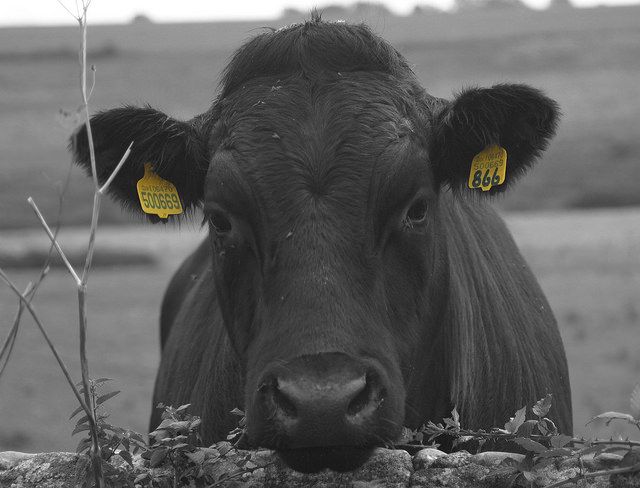The Crown withdrew criminal mischief charges on Wednesday against six animal rights activists who had been arrested last November for blockading an entrance to a slaughterhouse in the west end of Toronto.
“It’s never pleasant to have charges hanging over one’s head,” said animal rights lawyer Camille Labchuk, who represented the six defendants, in a telephone interview on Thursday.
“Everyone yesterday was quite relieved when the Crown made the appropriate decision not to continue with the prosecution. The Crown decided it was not in the public interest to prosecute in this case and certainly when you review the video tapes that were taken at the scene when the incident was ongoing, it’s apparent that the peaceful protesters were engaged in a very respectful protest outside the slaughterhouse.
“It was (also) apparent that they were assaulted by the slaughterhouse workers who wanted to resume their operations and got tired of the activists being on the scene. So I believe that played into the Crown’s decision.”
Since their arrest, the defendants had been under two primary conditions. The first was not to associate with any of their co-accused.
“Which is very difficult and stressful for people who are close friends in a political movement and spend a great deal of time socializing in the same community,” said Labchuk.
The second condition was not to attend the premises outside the slaughterhouse where the arrests took place.
“Again that does impose a somewhat of a limitation on their rights, their mobility and their ability to go wherever they want to go and associate with whom they wish to associate.”
The seventh defendant, prosecuted for assault police and criminal mischief, did not have her charges withdrawn. Her next court date is February 9.
Labchuk said her clients considered the withdrawal of their charges as a “tremendous victory for free speech” as well as the right to peacefully protest.
“I know they intend to continue expressing their belief that animals should not be slaughtered for human consumption,” she said.
On November 6, six animal rights activists sat on the on the pavement to prevent trucks from delivering cows to St. Helen’s Meat Packers, a slaughterhouse in the west end of Toronto.. Sixty five to seventy other activists turned up to provide support.
Activists contend that was the first non-violent civil disobedience blockade of a slaughterhouse truck in Canadian history.
“We morally object to the systematic violence perpetrated by this industry and feel that it is time to stand strong in our beliefs that it is wrong to kill when you don’t have to,” said Lorena Elke, a local resident and activist.
“What Gandhi was willing to do for the sake of social justice and anti-racism, we are willing to do in defence of non-human animals, so it is in the peaceful act of sitting that we oppose animal cruelty and the violation of the basic rights of these thinking, feeling individuals.”
Paul York, one of the six arrested and charged, was pleasantly surprised that the charges were withdrawn and excited about spending time with his fellow activists once again.
He attended a Toronto Cow Save vigil on Thursday at St. Helen’s Meat Packers.
“We must continue this work till this evil system ends,” said York.
“We should never forget them. Bearing witness at Save vigils is a way of remembering and standing up for them, and that important work must continue everywhere there are slaughterhouses.”




